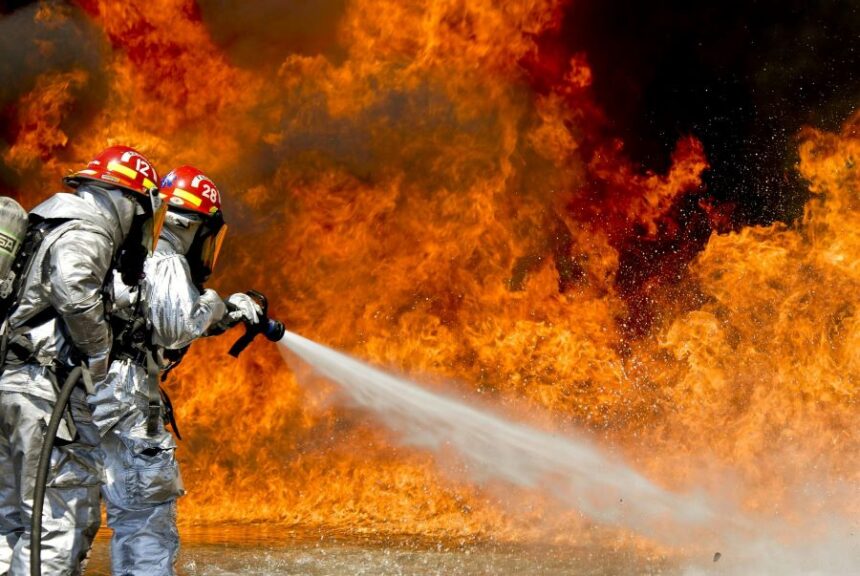What is the Colorado Firefighter Safety Act, and why is it so significant for emergency responders in the state? As wildfires, urban fires, and disaster responses intensify in Colorado, the protections offered to firefighters have become urgent. The Colorado Firefighter Safety Act addresses this need by laying out specific legal rights and workplace protections for those on the front lines of public safety.
Enacted to ensure firefighters are treated fairly, the Act guarantees them collective bargaining rights and safeguards them from retaliation. It applies to career and volunteer firefighters, helping standardize safety practices across jurisdictions. The Act also mandates that firefighters have a formal voice when negotiating wages, training, equipment, and working conditions, ensuring they are not sidelined in critical decision-making processes.
In this article, we’ll answer the question, “What is the Colorado Firefighter Safety Act?” in full detail. We’ll cover its background, core provisions, union involvement, real-world impacts on firefighter safety and rights, and what it means for Colorado communities. Whether you’re a first responder, policymaker, or concerned citizen, this guide offers essential insights into one of Colorado’s most important labor and safety laws.
What is the Colorado Firefighter Safety Act?
The Colorado Firefighter Safety Act is a state law that protects firefighters’ rights, including their ability to unionize and negotiate working conditions. It ensures fair treatment, safety standards, and collective bargaining for career and volunteer firefighters.
The Origins and Intent Behind the Colorado Firefighter Safety Act
The Colorado Firefighter Safety Act was created in response to increasing concerns about the inconsistent safety standards and lack of representation that firefighters faced, particularly in smaller and rural departments. Before its passage, many firefighters had minimal influence over the decisions that directly affected their health, safety, and day-to-day working conditions. As emergency calls grew more complex and hazardous, the need for structured support and worker protections became urgent.
Passed in 2013, the Act granted firefighters the legal right to form unions and advocate for better working conditions, even if their local governments opposed such actions. While it does not require municipalities to enter into binding labor contracts, it mandates a “meet and confer” process, ensuring firefighter voices are heard in critical equipment, safety standards, and staffing decisions.
The legislation significantly shifted the balance of power, helping to professionalize fire departments across the state. It introduced more transparent communication between workers and leadership, promoted consistency in safety practices, and boosted overall morale. Today, the Colorado Firefighter Safety Act is a landmark achievement in labor advocacy and continues to provide vital protections for the state’s emergency responders.
How the Colorado Firefighter Safety Act Works in Practice
To truly understand the Colorado Firefighter Safety Act, it’s essential to see how it functions daily. The law goes beyond theory, offering fundamental protections and structured dialogue for firefighters statewide.
Legal Protections and Unionization
One of the most significant aspects of the Colorado Firefighter Safety Act is its guarantee that firefighters have the right to form or join a union. This right applies regardless of local government preferences or historical policies. By recognizing firefighters as essential public workers with a voice, the Act ensures they can engage in meaningful conversations about their job environments, safety concerns, and work-related policies without fear of retaliation.
Meet and Confer Requirements
Unlike laws that mandate binding collective bargaining, the Colorado Firefighter Safety Act introduces a “meet and confer” model. This means that while employers are not obligated to finalize contracts, they must legally listen, respond, and negotiate in good faith with firefighter representatives. This structured dialogue fosters better communication between departments and the personnel risking their lives daily.
Applicability to Volunteer Firefighters
Significantly, the Act does not limit its protections to career firefighters. Volunteer firefighters comprise a large portion of Colorado’s emergency response teams and are also included under the law’s umbrella. This ensures consistent treatment and safety expectations statewide.
Topics Addressed in Discussions
Typical topics in these structured discussions include access to updated personal protective equipment (PPE), adequate staffing levels, specialized training programs, and mental health resources. These conversations help firefighters advocate for resources essential to their safety and effectiveness.
Enforcement and Oversight
The law includes accountability provisions to ensure compliance. Departments that fail to engage sincerely with firefighter unions may face formal complaints or legal scrutiny, reinforcing the seriousness of their obligations under the Act.
Benefits of the Colorado Firefighter Safety Act
The Colorado Firefighter Safety Act provides more than symbolic support—it introduces tangible, enforceable protections that improve firefighter well-being and public safety. Below are some of the key benefits that illustrate why this legislation matters:
- Stronger Worker Protections: Firefighters are legally protected from retaliation when they advocate for better working conditions, speak out about safety issues, or participate in union activities.
- Greater Input on Safety Equipment: Departments must now include firefighter perspectives when deciding gear purchases, equipment upgrades, and safety protocols. This ensures frontline needs are prioritized.
- Standardized Procedures Across Departments: The Act promotes consistent safety standards, operational practices, and training programs throughout Colorado. This helps align protocols across urban, suburban, and rural departments.
- Focus on Mental Health and Wellness: The law encourages departments to offer mental health resources and recognize the job’s emotional toll. This includes counseling access and PTSD awareness programs.
- Fair Compensation Conversations: While it doesn’t require raises, the Act ensures that wages, insurance, and retirement benefits are topics open for discussion, allowing firefighters a seat at the negotiating table.
- More substantial Community Confidence: When firefighters feel safe, valued, and equipped, their performance improves. Communities benefit from faster response times, better coordination, and enhanced public trust in local emergency services.
Challenges and Controversies Surrounding the Act
While the Colorado Firefighter Safety Act has significantly improved firefighter rights, it has not been without controversy. Some municipalities argue that the law oversteps by requiring them to negotiate or reevaluate long-standing internal policies, particularly in smaller towns with limited resources. Budget concerns often arise, with officials fearing they cannot meet union expectations without compromising other essential services.
Debates have also emerged over the perceived influence of firefighter unions. Although the Act does not mandate binding arbitration, some critics believe it puts undue pressure on local governments, potentially weakening their autonomy. Supporters counter that firefighter voices might be dismissed without such legal protections, especially when safety is on the line.
Occasional legal challenges have tested the interpretation of “meet and confer” provisions, but courts have largely upheld the law. Despite occasional friction, the Act remains a critical and evolving part of Colorado’s public safety landscape.
Why the Colorado Firefighter Safety Act Still Matters Today
The Colorado Firefighter Safety Act continues to play a vital role in shaping the state’s firefighter policy and public safety. Its long-term impact goes beyond initial protections, adapting to new challenges and setting an example for broader reform. Here’s why the Act remains critically essential:
1. A Model for Other States: The Colorado Firefighter Safety Act has been used as a legislative reference for other states exploring how to protect first responders. Its balanced approach offers a framework for safety without overly burdening local governments.
2. Addressing Emerging Threats: As Colorado faces increased wildfire activity, rapid urban expansion, and chemical hazards, the risks to firefighters have intensified. The Act ensures these evolving dangers are met with structured, responsive support systems.
3. Promoting Mental Health Conversations: Firefighters routinely face traumatic situations. The Act encourages departments to prioritize mental health resources, including access to PTSD treatment, peer support, and recovery programs.
4. Improving Workforce Retention and Recruitment: The Act provides legal protections and a stronger voice in the workplace, making firefighting a more secure and appealing profession and helping departments attract and retain qualified personnel.
5. Strengthening Community Trust: When firefighters are well-supported, they perform more effectively. Communities benefit through improved response times, safer operations, and increased confidence in their emergency services.
Final Thoughts
What is the Colorado Firefighter Safety Act? At its core, it’s a powerful affirmation of respect for those who serve on the front lines of public safety. This law grants firefighters the voice they need to raise concerns, advocate for critical resources, and protect their well-being, physically and mentally. By requiring departments to engage in structured dialogue, the Act fosters collaboration without forcing binding agreements, creating a practical solution that honors firefighter needs and local control. Its lasting relevance lies in this balance. As firefighting grows more complex and dangerous, the Act stands as a crucial safeguard, ensuring those who protect us are, in turn, protected by the systems they serve within.
FAQ’s
What is the Colorado Firefighter Safety Act?
It’s a Colorado state law that protects firefighters’ rights to unionize, negotiate working conditions, and advocate for safety, training, and fair treatment on the job.
Does the Act apply to volunteer firefighters?
Yes, the Act includes volunteer firefighters, ensuring they receive many of the same workplace protections and negotiation rights as full-time professionals across the state.
Is collective bargaining mandatory under the Act?
No, but the law requires departments to engage in “meet and confer” sessions, meaning they must hold good-faith discussions with firefighter representatives on workplace matters.
Can municipalities ignore firefighter concerns?
Legally, no. Municipalities must meet and discuss firefighter concerns, although they are not required to accept specific proposals or enter binding agreements.How has the Act helped Colorado firefighters?
It has improved access to safer equipment, encouraged standardized training, supported mental health initiatives, and given firefighters a stronger voice in shaping their work environment.











